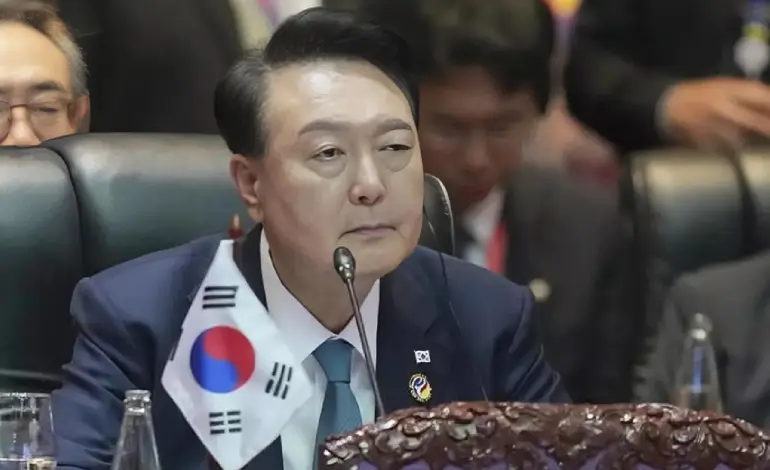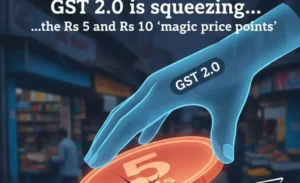On January 15, 2025, South Korea experienced a watershed moment in its political history with the arrest of its impeached President, Yoon Suk Yeol. His contentious declaration of martial law late last year set off a chain of events that has left the nation deeply divided. This arrest not only signifies a pivotal moment in South Korean politics but also raises critical questions about democracy, executive authority, and the nation’s political future.
The Declaration of Martial Law
The crisis began on December 3, 2024, when President Yoon Suk Yeol made a shocking televised announcement imposing martial law. Yoon justified this drastic step by citing escalating national security threats and increasing internal unrest. He framed his decision as necessary to maintain stability and order during a time of heightened geopolitical tension in the region.
However, the announcement was met with immediate backlash. Critics accused Yoon of abusing his power, undermining democratic institutions, and silencing opposition voices under the guise of national security. Civil rights groups and opposition leaders argued that the move was unconstitutional and posed a grave threat to the democratic principles that have underpinned South Korea’s governance for decades.
Impeachment and Arrest
The declaration of martial law sparked a swift response from South Korea’s National Assembly. On December 10, 2024, lawmakers voted overwhelmingly to impeach President Yoon, citing abuse of power and a blatant violation of democratic norms. Despite this, Yoon refused to step down, insisting that his actions were in the best interest of the nation.
Over the next few weeks, tensions escalated as Yoon ignored multiple summonses from prosecutors and openly defied the impeachment proceedings. This defiance culminated in a dramatic law enforcement operation on January 15, 2025, to detain him. Hundreds of officials from the Corruption Investigation Office for High-Ranking Officials, backed by police, arrived at the presidential residence to execute the arrest warrant.
After hours of negotiation with Yoon’s legal team, he was taken into custody. His detention marked a significant turning point in the political saga, drawing both national and international attention.
Yoon’s Defense: “Martial Law is Not a Crime”
Even in custody, Yoon remained defiant. In a statement released through his attorneys, he asserted, “Martial law is not a crime.” He argued that his actions were not only lawful but necessary to safeguard the nation from existential threats. According to Yoon, his decision to impose martial law was a preventive measure to maintain order during a time of political and social volatility.
Yoon’s supporters have echoed his sentiments, holding mass rallies to protest his impeachment and arrest. To them, Yoon is a leader who prioritized national security over political expediency, a bold figure unafraid to make tough decisions.
Public Reaction and Political Implications
The arrest has further polarized an already divided nation. Supporters of Yoon view his detention as a politically motivated move aimed at silencing a leader who dared to challenge the status quo. On the other hand, critics see his actions as a dangerous attempt to consolidate power and undermine South Korea’s hard-earned democratic system.
Mass protests and counter-protests have erupted across the country, with citizens taking to the streets to voice their opinions. The public discourse has shifted to larger questions about the balance of power between the executive and legislative branches and the resilience of South Korea’s democratic institutions.
The Road Ahead
As legal proceedings against Yoon unfold, South Korea faces a critical juncture. The case is likely to serve as a litmus test for the country’s commitment to democracy and the rule of law. It will also force political leaders and institutions to grapple with the limits of executive authority and the mechanisms in place to prevent its misuse.
This incident has also exposed deep societal rifts that extend beyond politics, highlighting the challenges of maintaining unity in a rapidly changing and increasingly polarized world. The decisions made in the coming months will have far-reaching consequences, shaping the trajectory of South Korean politics for years to come.
Conclusion
The arrest of impeached President Yoon Suk Yeol is a stark reminder of the delicate balance required to uphold democratic principles in times of crisis. His controversial declaration of martial law and the events that followed have brought South Korea to a critical crossroads. While the nation watches closely, the unfolding saga will undoubtedly leave an indelible mark on its political landscape and democratic legacy.
In the end, the resolution of this crisis will determine not only Yoon’s fate but also the strength and integrity of South Korea’s democracy. It is a moment of reckoning that will test the resilience of the nation’s institutions and its people’s commitment to democratic governance.










